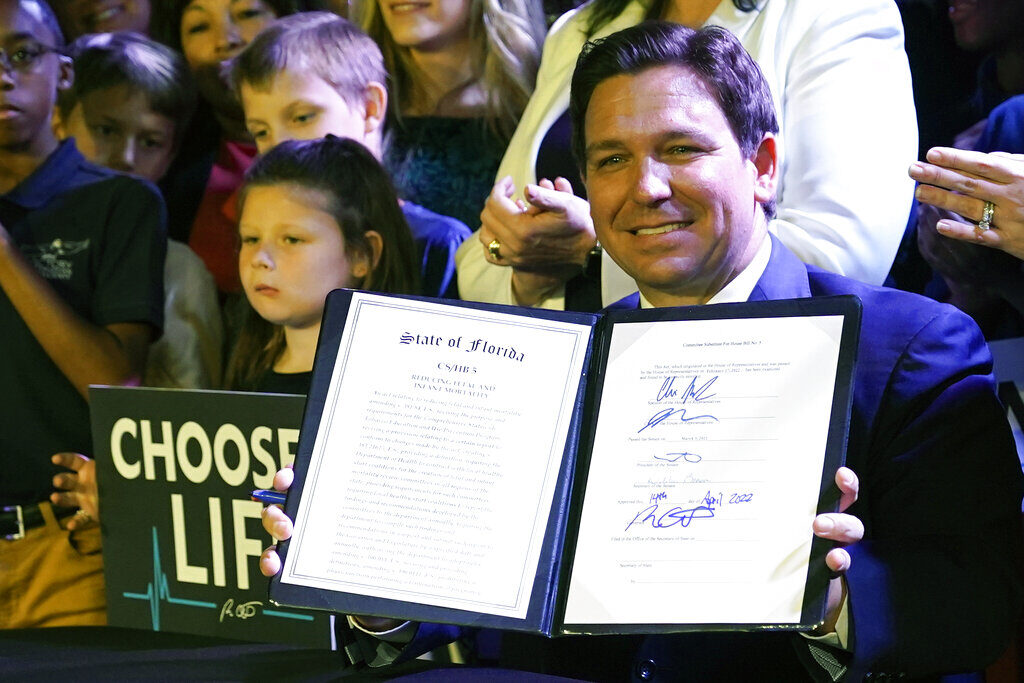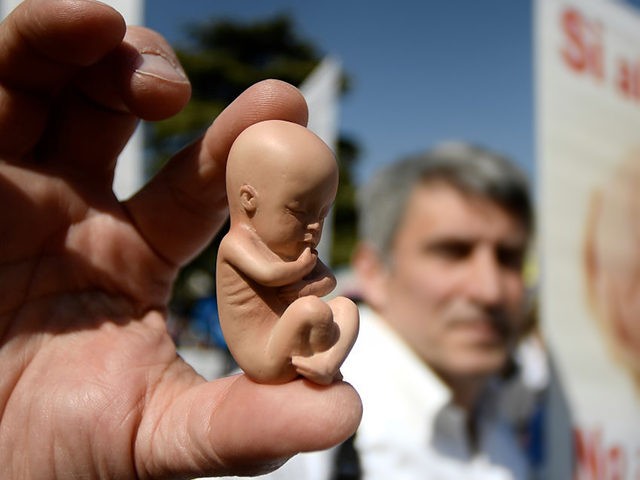A proposed amendment in Florida to create a constitutional right to abortion up to 24 weeks of pregnancy is falling short of the 60 percent support needed to pass, months out from the 2024 election, a poll found.
A poll, released on Thursday by Florida Atlantic University (FAU), found that 49 percent of Florida voters plan to vote yes on the abortion measure, called Amendment 4. Nineteen percent oppose the measure, while 32 percent are unsure how they will vote.
“Since almost a third of respondents do not know how they would vote if faced with the ballot initiative, this means that it could go either way come November,” said Dr. Luzmarina Garcia, assistant professor of political science at FAU.
The results are on par with a survey from Emerson College Polling released on April 11, which found that 32 percent of Florida voters were “unsure,” 42 percent planned to support the measure, and 25 percent planned to vote no.
According to a further breakdown of the FAU survey in the South Florida Sun Sentinel, Democrats largely support the measure, while Republicans are divided and unsure. Sixty-eight percent of Democrats plan to vote yes on Amendment 4, 11 percent plan to vote no, and 21 percent are unsure.
“Among Republicans, don’t know was the top answer, at 41 percent, with 33 percent supporting the referendum and 26 percent opposed,” according to the report.
More than one-third (35 percent) of independents are also unsure how they will vote, while 46 percent say they plan to vote in favor of the measure, and 19 percent plan to vote against it.
Men are much more likely than women to oppose the proposed amendment, 26 percent to 12 percent.
“Among women, 39 percent said they didn’t know how they’d vote on the referendum, compared to 25 percent of men who said they didn’t know,” according to the report.
The proposed amendment is backed by Floridians Protecting Freedom — a coalition of left-wing groups that includes Planned Parenthood and the American Civil Liberties Union (ACLU) of Florida — and bars the state from restricting abortion before viability (approximately 24 weeks) or “when necessary to protect the patient’s health, as determined by the patient’s healthcare provider.”
The ballot summary states:
No law shall prohibit, penalize, delay, or restrict abortion before viability or when necessary to protect the patient’s health, as determined by the patient’s healthcare provider. This amendment does not change the Legislature’s constitutional authority to require notification to a parent or guardian before a minor has an abortion.
The abortion activists backing the measure surpassed the number of required signatures in January, and the measure will appear as “Amendment 4” on the general election ballot, according to state officials.
On April 1, the Florida Supreme Court issued two significant decisions, upholding a 15-week limit on abortion in the state while also allowing a proposed abortion amendment to appear on the ballot in November.
The court’s decision to allow the 15-week limit to stand also clears the way for the state’s six-week abortion limit to take effect. Florida Gov. Ron DeSantis (R) signed the 15-week limit in 2022, which Planned Parenthood affiliates in the state almost immediately challenged in court. DeSantis then signed the six-week Heartbeat Bill in April 2023, which contains exceptions for rape, incest, and the life of the mother.

Florida Gov. Ron DeSantis (R) holds up a 15-week abortion ban law after signing it on April 14, 2022, in Kissimmee, Florida. (AP Photo/John Raoux)
If Florida voters pass the measure with at least 60 percent support in November, the amendment would undo the six-week limit and basically create a permanent right to abortion in the state that could only be undone with another ballot measure or an uphill legal battle.
The FAU poll was conducted with 865 Florida voters between April 15 and 17, 2024, by Mainstreet Research. The margin of error is ± three percentage points.
Katherine Hamilton is a political reporter for Breitbart News. You can follow her on X @thekat_hamilton.

COMMENTS
Please let us know if you're having issues with commenting.